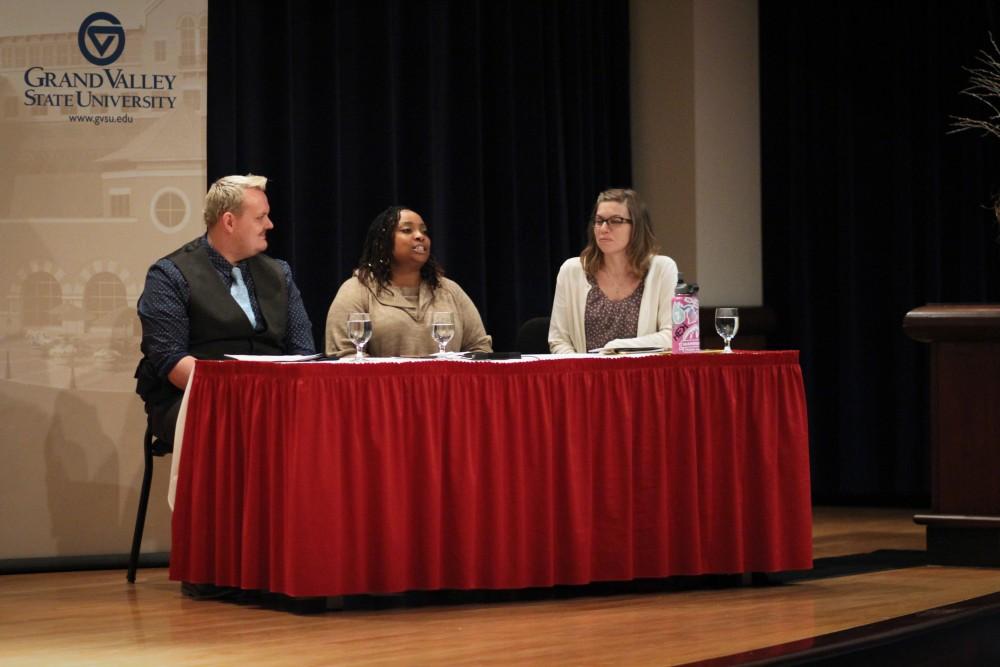Professor lectures on human trafficking in Michigan

GVL / Sheila Babbitt Representatives from the Manasseh Project speak out against human trafficking in Michigan after the viewing of the movie Break the Chain on March 15th, 2018.
Mar 19, 2018
Grand Valley State University’s Delta Phi Lambda chapter hosted a discussion on human trafficking in the state of Michigan to complement the sorority’s home chapter philanthropy of fighting human trafficking.
On Thursday, March 15, the sorority partnered with assistant professor of criminal justice Tonisha Jones. Jones’ experience studying human trafficking for 18 years started with her internship as an undergraduate at the prosecutor’s office in a domestic violence unit. She reviewed police reports, helped victims of sexual violence fill out paperwork and accompanied victims to court.
When many students think of the words “human trafficking,” they might envision a girl walking late at night snatched off the streets or an immigrant smuggled over the border. Although women may be an easy target due to varying economic, social and political rights, religious populations are also trafficked due to some cases of population displacement.
Victimization is found in individuals who identify as youth, homeless, LGBTQ and runaways. They live in isolation, are impoverished and suffer from domestic violence. On a social scale, victims may experience discrimination, immigration, political instability and a lack of strong labor protection. The words and images that came to mind for attendees were slavery, abuse, manipulation and control, and they drew images of a red X as they remembered the END IT Movement.
Jones said human trafficking comes in many forms and does not discriminate. It comes for sex, labor, illegal adoption, illegal removal of organs and participation of child soldiers. It finds U.S. citizens, foreign nationals, women, men and children. It steals from the streets, fake massage businesses, online ads, truck stops, hotels, homes, factories, restaurants, construction sites, door-to-door sales and more. It takes through violence, threats, debt bondage, confiscation of passports and other forms of coercion.
The U.S. Department of Homeland Security investigated 1,029 trafficking cases in 2016. The numbers were remarkably lower for the Michigan State Police in the same year, reporting 17 commercial sex acts. This vast difference could partly be explained by victims going unreported and being hidden or the police confirming the people they see don’t act like victims.
Jones taught students the signs to look for in possible victims.
“A lot of people say this is bigger than me; I don’t have a role to play,” Jones said. “But everyone has a role to play.”
Jones encouraged students to educate themselves on human trafficking and how to identify it. She suggested raising awareness through friends and family, schools and the local community. There are also ways to get involved through organizations, advocacy and challenging the dominant narrative. In these ways, GVSU students, faculty and staff can help stop this trafficking.
“Not many people are taking action on this,” said Pactra Chab, vice president of Delta Phi Lambda. “We want to be the ones taking action and making the community aware this is happening. You don’t see it, so (we have to think about) how (we) are going to make an impact.”























